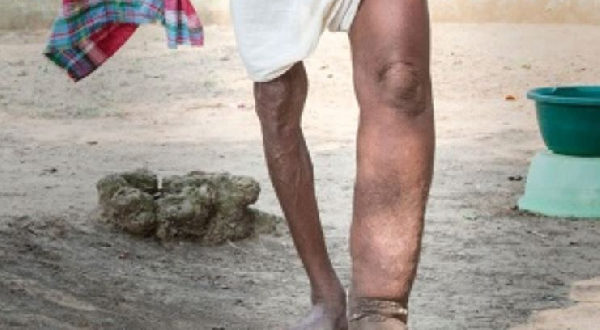The Ghana Health Service (GHS) through the Neglected Tropical Diseases (NTDs) programme will from today begin the mass administration of anti-lymphatic filariasis (elephantiasis) and river blindness (onchocerciasis) drugs across 126 endemic districts in the country.
In all, 15 districts have been targeted for elephantiasis, 120 districts for river blindness and nine districts in co-endemic areas will be covered in the 12-day programme.
The Mass Drug Administration (MDA) will be done in mainly remote rural areas as well as urban slums where the diseases, which are severely debilitating, are widespread.
The yearly outreach programme is to help control and eliminate NTDs including elephantiasis and river blindness, by breaking the transmission in the endemic districts.
Ag Director General of GHS, Dr. Patrick Aboagye, in his welcome address, said Ghana has, through strategies like mass drug administration and health education, broken the transmission of lymphatic disease in 83 out of the 98 endemic districts.
He, however, noted that based on the findings of a recent assessment of river blindness situation in the country, more districts would have to receive the MDA thus increasing the number of districts in this year’s exercise.
“What it means is that all hands must be on deck to respond to the upscaling of onchocerciasis endemicity. Collaboration with agencies and stakeholders must be intensified,” he said.
Addressing the media during a press engagement on the mass drug administration, Dr. Benjamin Marfo, NTDs Programmes Manager, said river blindness is caused by the parasitic worm, onchocerca volvulus, transmitted by the vector called black fly which breeds in fast flowing rivers.
“It is the second leading cause of avoidable blindness globally. The parasite lives in the skin causing intense itching, changes in skin texture including thickening and darkening,” he said.
Dr. Marfo said the disease could be treated effectively by taking ivermectin tablets annually. He, therefore, urged the public to participate in the exercise.
He said the female anopheles mosquito transmits the parasitic worm, wuchereria bancrofti, which causes elephantiasis. The parasite lives in the lymphatic system, a network of blood vessel-like structures in the blood that helps with immunity and performs the important function of collecting and returning excess fluid to the blood.
“When the lymphatic system is damaged, excess body fluid accumulates in the limbs, scrotum and the breasts. National treatment started in 2001 and as of 2016, 83 districts had successfully reduced the disease to levels low enough to stop treatment,” he stated.
Source: dailyguidenetwork.com
 Home Of Ghana News Ghana News, Entertainment And More
Home Of Ghana News Ghana News, Entertainment And More




